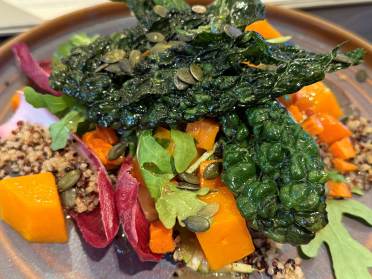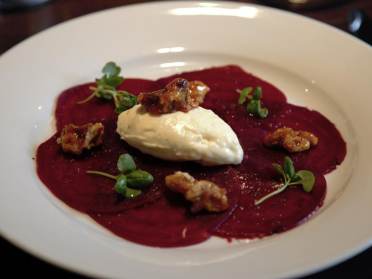More health and wellbeing advice from the Audley Club team.
It seems that as a heavy focus on cardio has given way to weight training, so too has the focus on what we use to fuel our bodies. Historically, shelves would be stocked with low-fat and low-sugar varieties. But today, a new focus on protein intake has turned nutrition on its head. Couple that with society’s growing accountability for sustainability and we see vegetarian and plant-based protein products becoming increasingly popular across the UK.
The growth of vegetarianism
According to research by Finder approximately “7.2 million adults in the UK are currently following a meat-free diet and a further 12% (6.5 million) of adults intend to become vegetarian, vegan or pescatarian by the end of 2021.” This growing transition is also championed by leading sports figures and lifestyle celebrities including Cheavon Clarke who have shown that vegetarian and vegan lifestyles can achieve the same level of exercise fuel along with health and physical stature as meat-based diets.
But what does this mean for the day-to-day vegetarian and what options are available to ensure a robust and balanced intake of protein can be achieved?
It's interesting to look at the amount of protein in 100g of meat, fish and beans/pulses.
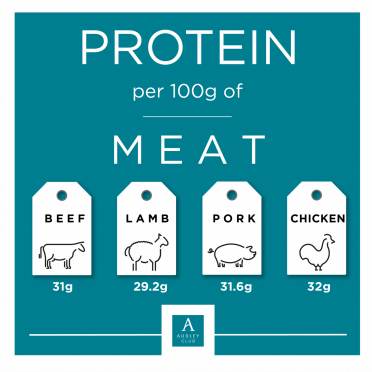
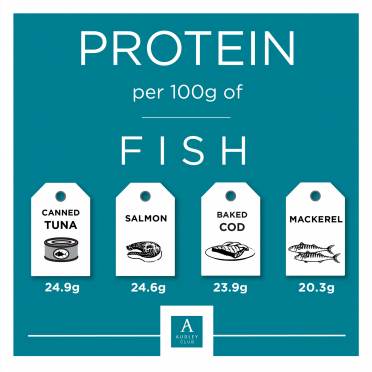
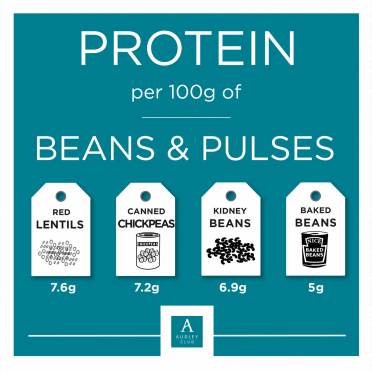
While many people see vegetarianism or veganism as a major lifestyle change, the variety of plant-based and meat-free products has grown exponentially. Plus, their nutritional benefit has been improved and refined continually. So much so, that in many cases they provide the same if not better nutritional benefits than their meat counterparts including vitamins, minerals and supporting a healthy immune system. Plus, for anyone who is still a bit nervous about making the change, the growing availability of spice powders and ingredient kits make turning old favourites meat-free easier.
If you're looking for an alternative-to-meat protein source, here we list some of the top vegetarian protein sources:
Seitan
Seitan is growing in popularity as a source of protein for vegetarians and vegans. It is made predominantly from wheat. Seitan contains roughly 25 grams of protein per 100 grams which makes it a top performer among vegetarian protein sources. Plus, there is the simple joy that Seitan resembles meat in terms of texture and look. And that is why you will often see it adorning vegan hot dog menus.
Oats
Oats may seem like a staple breakfast food and more tailored to carbohydrate intake, but they contain roughly 5-11g of protein per 100g and 4 grams of fibre. So they are a no-brainer start to your day. Whether making overnight oats topped with your favourite flavours like apple pie and cinnamon or mixing it in with chocolate milk on the stovetop, these little grains pack a protein punch.
Lentils
Lentils are another great option. When combined with wholegrain, they contain approximately 24 grams of protein per cooked cup. Lentils are incredibly colourful, absorbent of flavour and have the added benefit of providing half your recommended daily fibre. This makes this superfood a great addition to all your family favorite meals.
Dairy products
Dairy products are also a hidden gem when it comes to increasing protein intake. Greek Yoghurt provides 6g of protein for every 100g consumed and cow’s milk contains 3g per 100g. Perhaps the star of the show in the dairy department is cheddar cheese with 25 g of protein per 100g, but you will need to opt for reduced-fat options if you have concerns about saturated fat or calories. If you are vegan, try tofu for a big protein hit.
Spirulina
For those in a rush, spirulina is the number one go-to for a quick, no fuss protein hit. Just 2 tablespoons of this greenish powder, Spirulina, provide 8 grams of protein as well as 22% of your daily iron requirements and 95% of your copper needs. Mixed in with a fruit smoothie, this blue-green alga is a nutritional winner.
Nuts and seeds
And finally, an oldie but a goodie, nuts and seeds are still high on the list for protein power; although you do need to watch out for fat content. Approximately 30 grams of nuts can boost your protein intake by up to 7 grams. These little gems also provide great fibre intake along with vitamin E.




